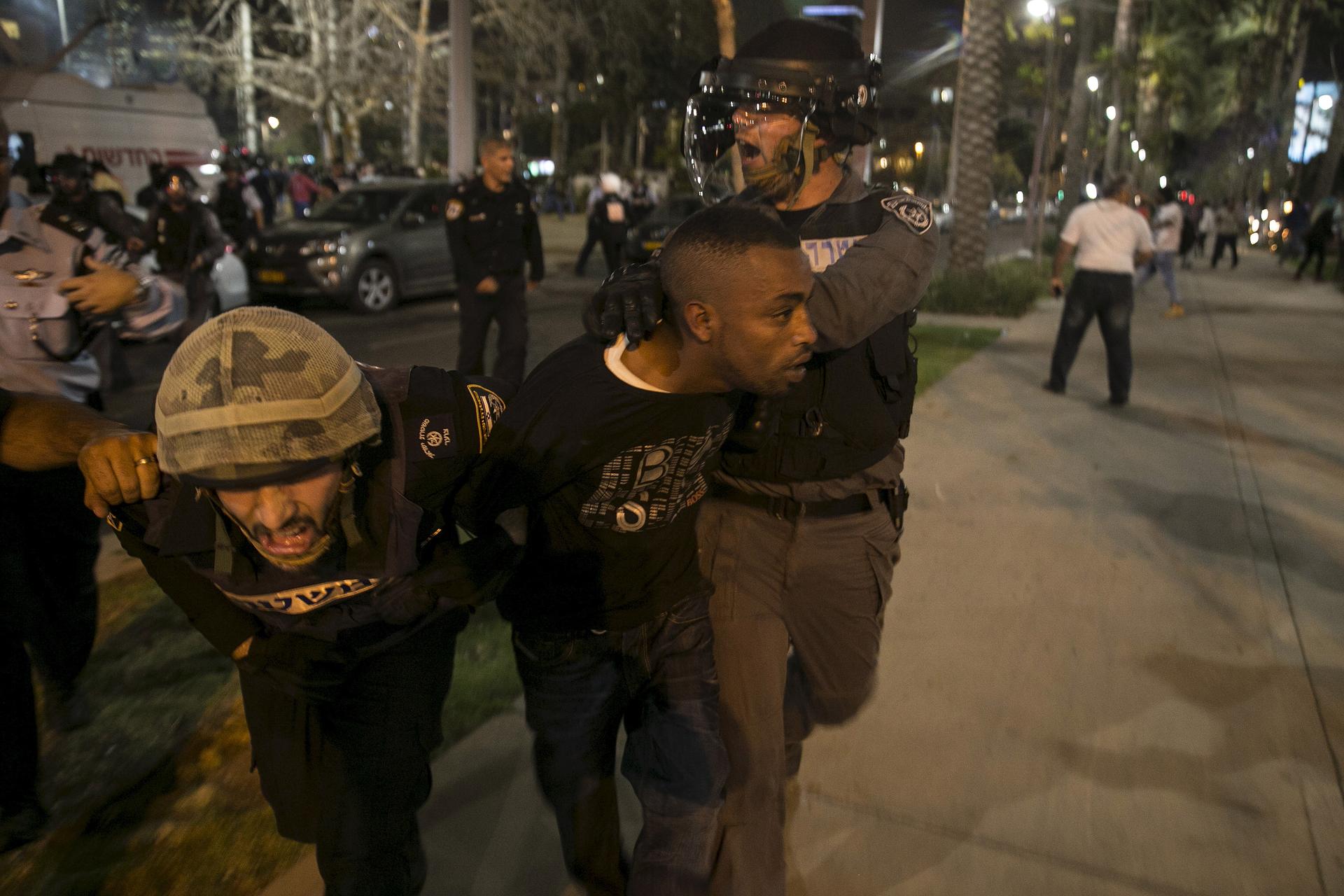‘After 30 years of Ethiopian Israelis living in this country, young people are rising up’
A protester, who is an Israeli Jews of Ethiopian origin, is detained by police during a demonstration against what they say is police racism and brutality in a protest at Rabin Square in Tel Aviv May 3, 2015.
When video surfaced last week showing police officers beating a black man in an apparently unprovoked attack, it immediately triggered comparison to Ferguson and Baltimore. But the footage came not from the United States but Israel, where tensions over the treatment of Ethiopian Jews turned into violent protests on Sunday.
“A young Ethiopian Israeli soldier was walking down the street. A police officer stopped him and then beat him up while he arrested him," says Jerusalem-based journalist Daniel Estrin. "It was seemingly unprovoked, at least that's the impression you get when you watch the video footage. … The prime minister said he was shocked when he saw this video."
But Ethiopians living in Israel were far from shocked. “They say this is no surprise to them," Estrin says. "They talk about experiencing this kind of discrimination across the board.”
Ethiopian Jews are recent immigrants to Israel, representatives of a Jewish community that was cut off from the rest of the Jewish world for centuries until they were airlifted to the Jewish state starting in 1984. “They’re a small minority, but they're really at the bottom rung of society here," Estrin says. "They always struggle to adapt to Israel and they complain of all kinds of discrimination.”
For Americans, the beating and protests that followed had uncomfortable echoes of the situation American black men have faced for years. But Estrin points out a key differencs in the perception of cultural racism between Israel and the United States: "In the US, race relations have been an ongoing, open wound. Here in Israel, the struggle for Ethiopian Jews has been a much more subdued issue.”
Issues of discrimination are not typically discussed in the Israeli media in much detail, Estrin says: “It's part of Israel's larger story. It's a country of immigrants. Each new group of immigrants look down upon the previous group of immigrants. It's the nature of immigrant societies."
But he does hold out some hope that this incident has prompted a larger public conversation about race in Israel. At one protest rally in Jerusalem, Estrin says, an Ethiopian Israeli protester “talked about how they fight for Israel in the army and they feel they give their lives for this country, but that Israel sees our blood is only good for being spilled on the battlefield. There's a real feeling here that after 30 years of Ethiopian Israelis living in this country, young people are rising up and, for the first time, speaking out.”
